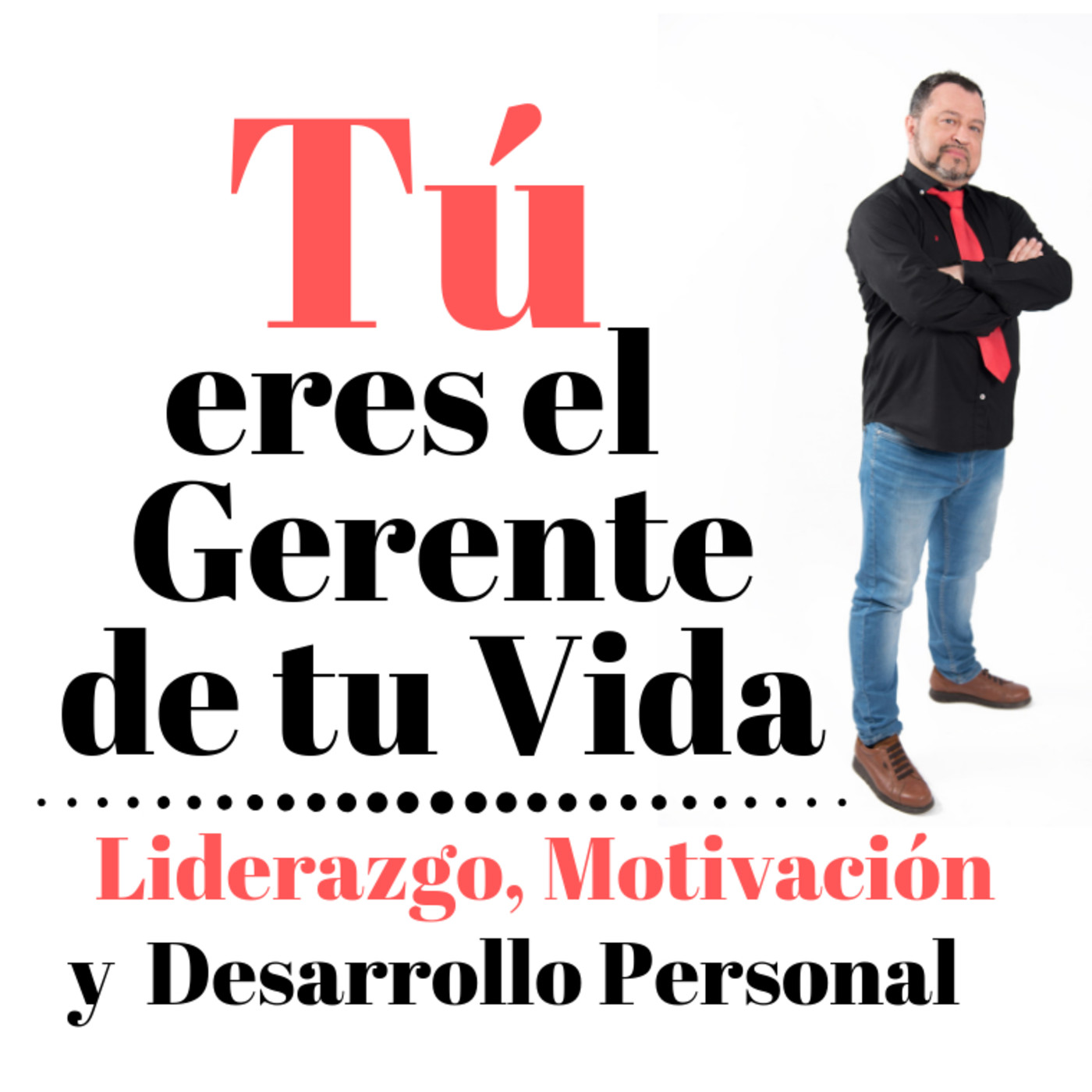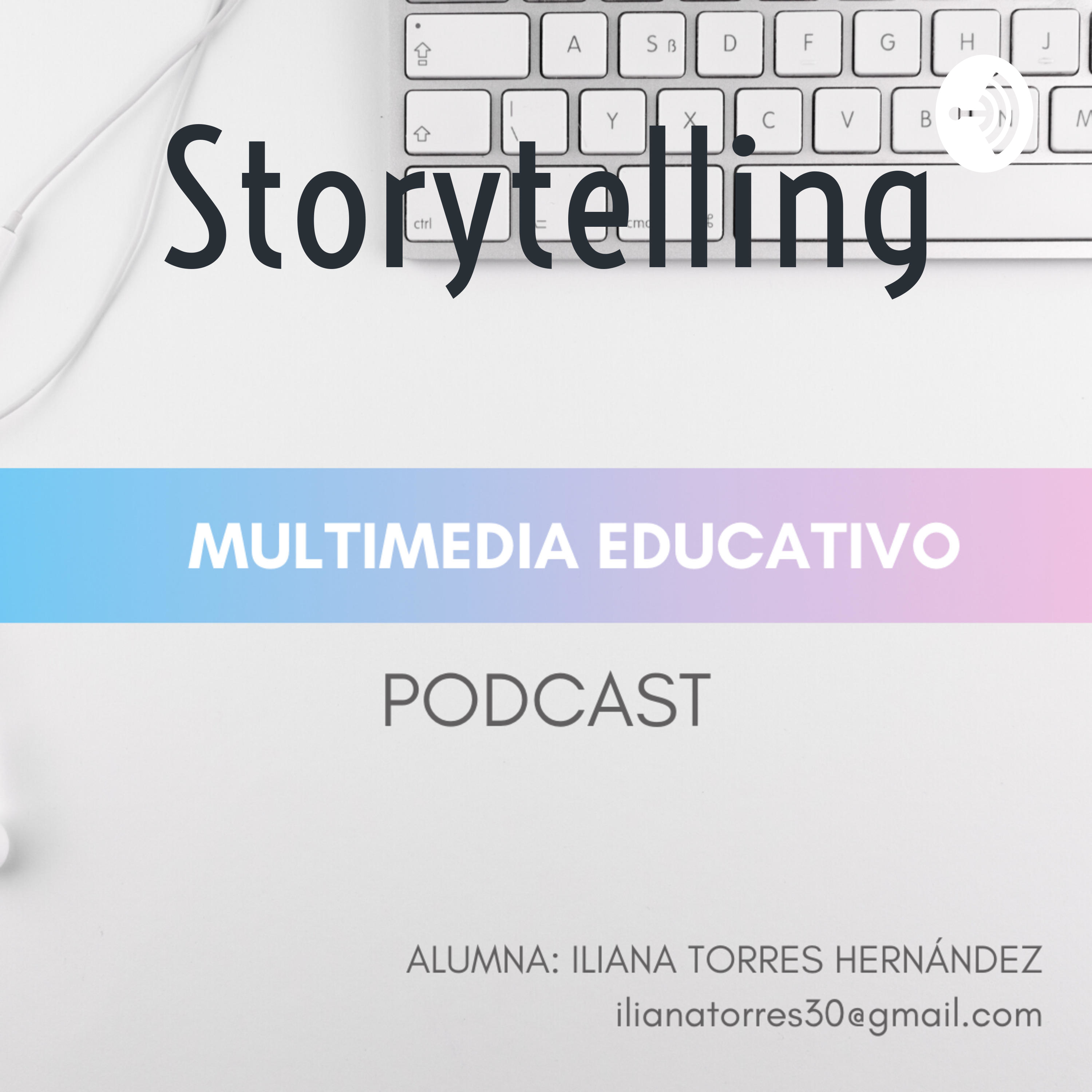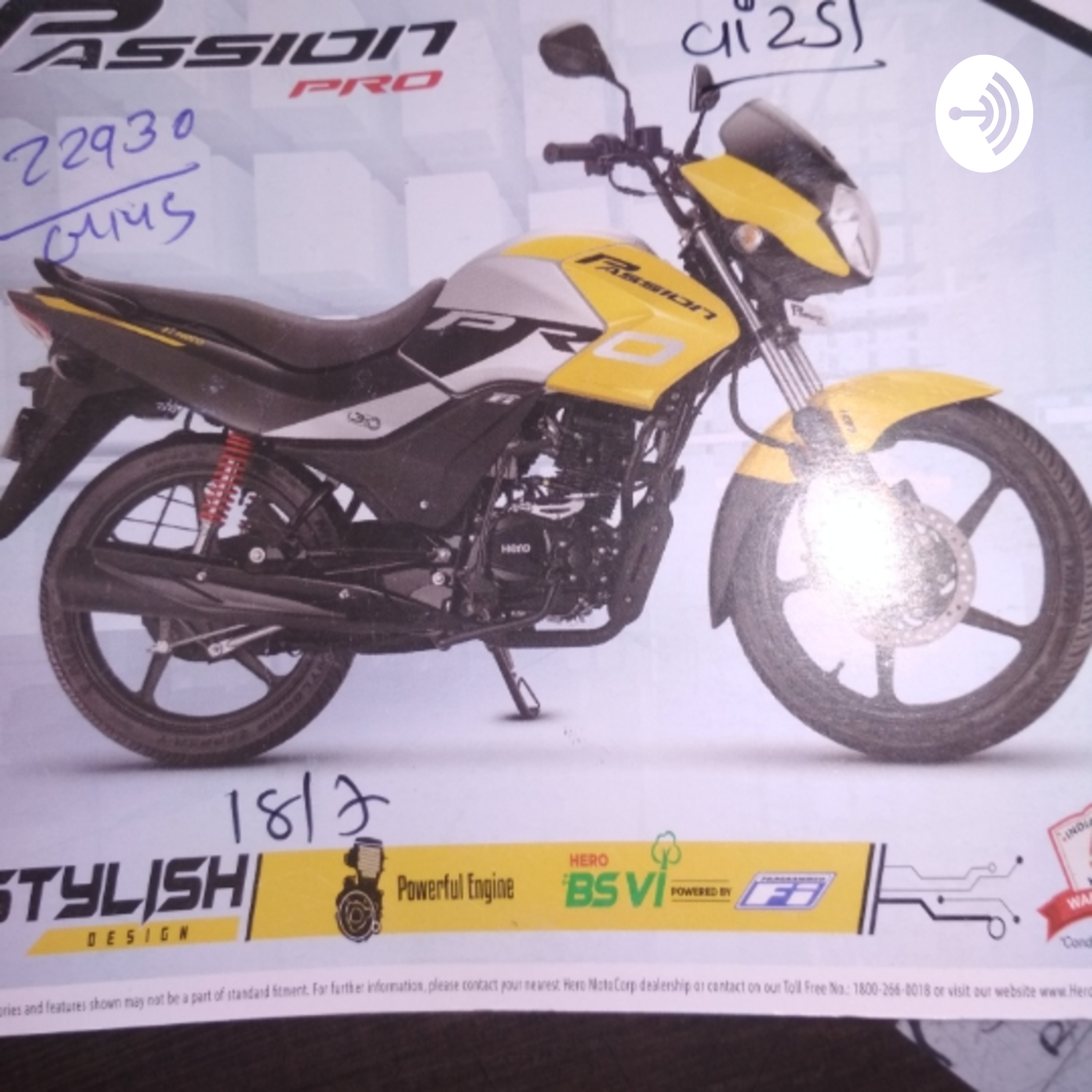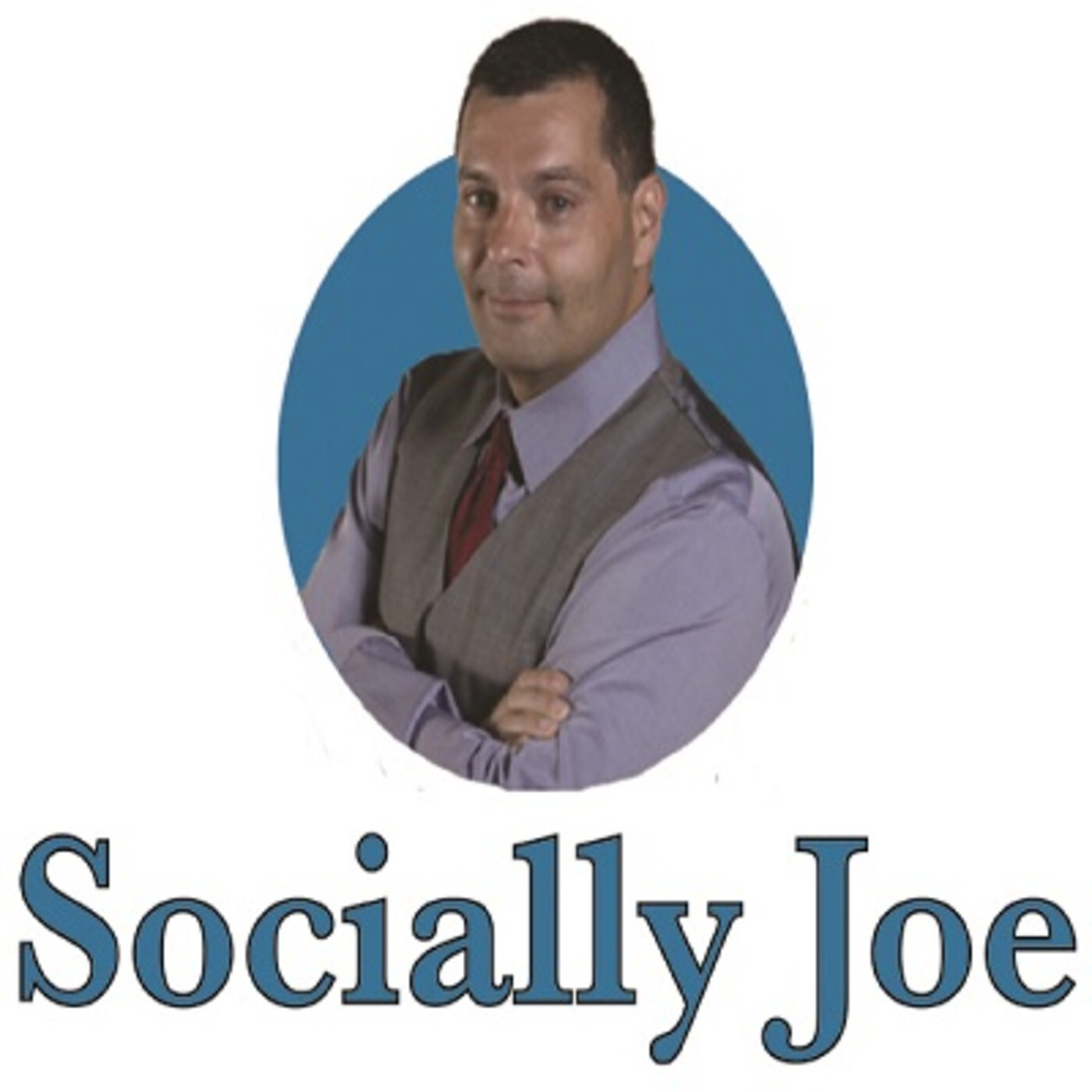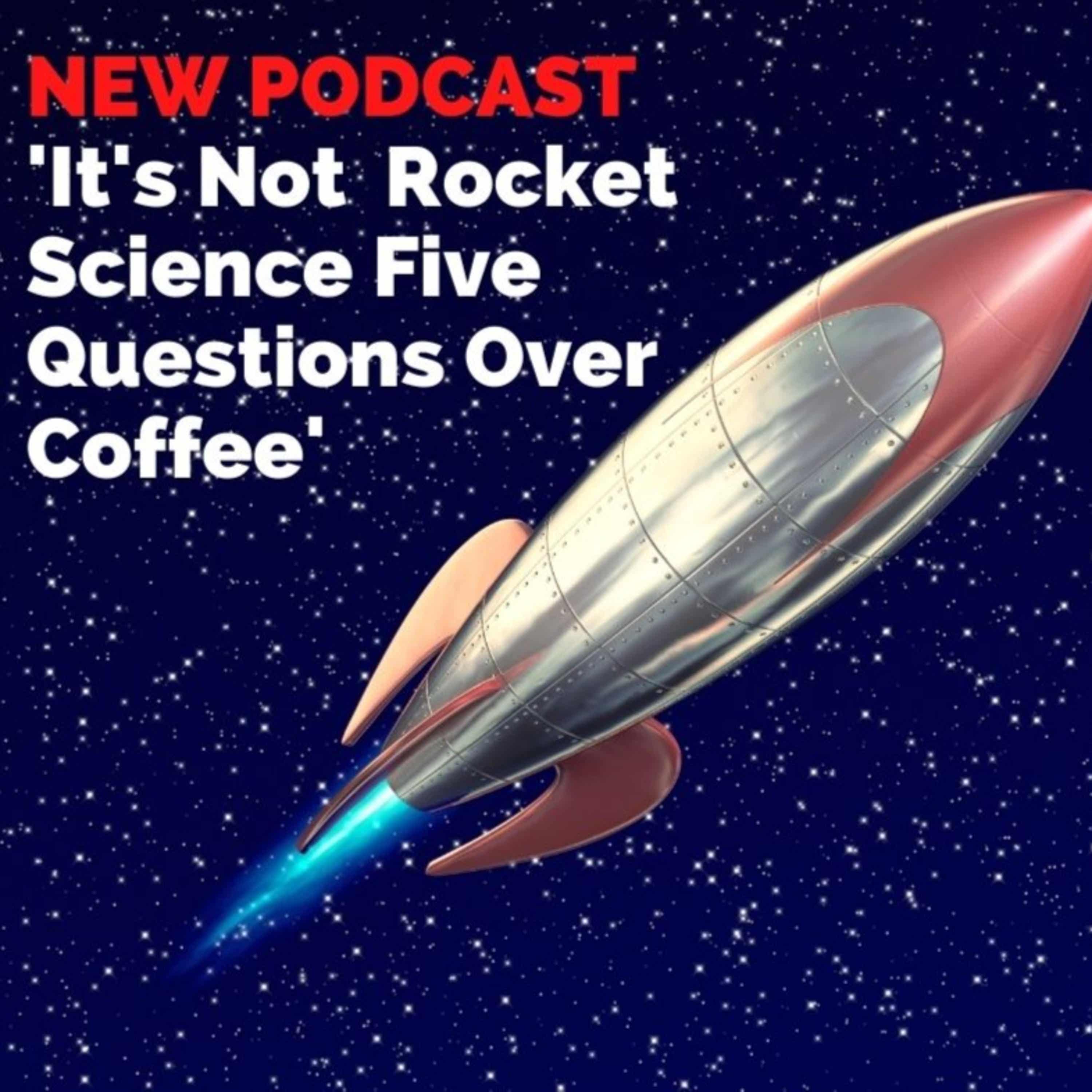 |
It's Not Rocket Science! Five Questions Over CoffeeHelping business owners explode their business growth Author: The Complete Approach
The mission of It's Not Rocket Science! is to bring a new idea for building business to growth-hungry business leaders and owners who want to do more with less time and so increase their business and influence. We deliver actionable ideas using our five questions over coffee. thecompleteapproach.substack.com Language: en Genres: Business, Entrepreneurship, Marketing Contact email: Get it Feed URL: Get it iTunes ID: Get it |
Listen Now...
Five Questions Over Coffee with Joe Abreu (ep. 141)
Episode 141
Thursday, 26 February, 2026
Who is Joe?Joe Abreu is the creator of the Profit Optimization Program, designed specifically for small to medium-sized business owners striving to bridge the gap between hard work and real profit. After years of working closely with business owners who frequently asked him how to translate increased revenue into greater profits, Joe began collecting and analyzing their recurring challenges. Drawing on these insights, he developed a results-driven program to help entrepreneurs break free from the cycle of endless work and unlock their businesses’ true financial potential. Through his work, Joe has empowered countless business owners to move beyond just doing more and instead focus on building businesses that reach their full profitability.Key Takeaways* Many business owners work harder, but profits still lag behind. Joe Abreu reminds us: true success comes from understanding your numbers, not just chasing more sales. Clarity leads to freedom.* Are you slashing expenses without strategy? Joe says test each change. Don’t cut blindly—learn what truly moves the needle for your business growth.* Delegation scares a lot of owners—what will I do once I delegate? According to Joe, it’s your chance to step back, innovate, and focus on what really matters.* The 80/20 Principle changed Joe’s business life: focus on the 20% of tasks that create 80% of results. Systemize, delegate, and start freeing up your time for what counts.* Your business shouldn’t be golden shackles. Profit optimization is about designing your business to give you freedom and the life you dreamed of when you started.Don’t forget: If you want to connect, ask questions, or get notified about upcoming guests like Joe, subscribe to the Systemise.Me newsletter here. You only need your first name and email—easy as (coffee) pie!Thanks for sharing a cup with us this week. Here’s to strong coffee, smart hiring, and believing in the dreams you’re just starting to imagine.And don’t forget: keep an eye out for next guest. To submit your own questions, subscribe to our newsletter and join the conversation!P.S. Loved this episode? Hit reply and let us know what resonated most_________________________________________________________________________________________________Subscribe to our newsletter and get details of when we are doing these interviews live at www.systemise.me/subscribeFind out more about being a guest at : link.thecompleteapproach.co.uk/beaguestSubscribe to the podcast at https://link.thecompleteapproach.co.uk/podcastHelp us get this podcast in front of as many people as possible. Leave a nice five-star review at apple podcasts : https://link.thecompleteapproach.co.uk/apple-podcasts and on YouTube : https://link.thecompleteapproach.co.uk/Itsnotrocketscienceatyt!Do You Need a P.A.T.H. to Scale?We help established business owners with small but growing teams:go from feeling stuck, sceptical, and tired of wasting time and money on false promises,to running a confident, purpose-driven business where their team delivers results, customers are happy, and they can finally enjoy more time with their family -with a results-based refund guarantee: if you follow the process and it doesn’t work, we refund what you paid.This is THE P.A.T.H. to scale your business.————————————————————————————————————————————-TranscriptNote, this was transcribed using a transcription software and may not reflect the exact words used in the podcast)SUMMARY KEYWORDSprofit optimization, small business owners, medium sized business, revenue, business profits, expense management, business growth, sales strategies, bookkeeping, financial literacy, accountant, business owner challenges, business expenses, business numbers, business coaching, process improvement, business systems, delegation, 80/20 principle, business mergers, business acquisitions, business sales, business optimization, podcast, business clarity, CRM, AI in business, business freedom, online course, certification course, workbookSPEAKERJoe Abreu, Stuart WebbStuart Webb [00:00:31]:Hi and welcome back to It’s Not Rocket Science. Five questions over coffee. I’m here with my guest today, Joe Abro. Joe is the author of the profit optimization program which I’m really excited to learn about. And Joe, I just want to thank you for taking a few minutes out of what I’m sure is a very busy day to spend a few minutes with us talking about this new program and the book you’ve written.Stuart Webb [00:01:00]:Oh, thank you for having me, Stuart. It is a pleasure to be here today.Stuart Webb [00:01:04]:Terrific. Now listen, let’s start why. So who is it that this book is written for? Who is it, if you like the person you’re trying to help by giving them access to the profit optimization program?Stuart Webb [00:01:17]:A great question. The profit optimization program was set up to service the small to medium sized business owners. That’s pretty much everyone everywhere who’s working exceptionally hard, trying to do their best that they can. But the revenue and the profits are just not connecting. We’re just doing more work, but we’re just not seeing the bottom line. We’re not really seeing what we could, how best we can be. And so what I’ve done is over the years I collected all the information from different business owners that asked me questions over and over. How do I get the revenue to actually create more profit? Because sometimes we put in more business, we create more business, but we never get to the very end.Stuart Webb [00:02:06]:Right. The profit doesn’t translate just the same way. And that’s where the profit optimization program was born, which is the collection of all these business owners. Over the years. In my experience as a business owner, I’ve had the opportunity to purchase businesses, to merge them. I have also to sell, so, you know, have sold them. So that’s given me a lot of experience to share.Stuart Webb [00:02:28]:And, and Joe, I mean you’ve obviously been through this, this program yourself, but what have you found when you’ve been talking to these people? What have they been trying to do to, to help themselves from, you know, the situation where the, the profits are somehow not quite adding up. What, what do you see as some of the common things they try to do, which, which are not, which are not effectively helping them?Stuart Webb [00:02:49]:Oh yes. So we see a few common things happen over and over. The first one I would say is in most business owners, what they do is when they look at their profit, it’s not matching the revenue or it’s not translating to the profits. They’ll just say, well, let’s go ahead and just do more sales, let’s just increase the revenue side. Right. That’s the most common thing. I mean, it makes sense. I mean, that’s exactly what we would all do as business owners.Stuart Webb [00:03:14]:So let’s just go ahead and put more deals through the pipeline and to see if that translates into profit. The second thing that we often see common mistakes or things that are slowing them down that probably they can improve would be looking at their expenses and not slashing them all at once. Because what happens is they start going through the whole business, all of their expense list, and what they’ll do is start slashing everything without testing one thing or another and then impacting the business. The third thing that they do very often is just hand over the books to an accountant or a bookkeeper and not really learning their own numbers. And I’m guilty of that. As a business owner, I just want to do the sales. I want to get out there, I want to get involved, I want to grow, and I don’t want to see the numbers all the time. But if we don’t learn our own numbers, how do we know how to impact? How do we improve them, how to slash some of the expenses? So we have to learn those numbers.Stuart Webb [00:04:17]:And, you know, lastly, what they do is they try to do all of these things at one time versus trying one step at a time to see what works and what doesn’t work.Stuart Webb [00:04:29]:Absolutely, absolutely. I’ve just put on the screen, you know, if anybody has questions or comments on what you’ve just said, I. I’d love to see them in the chat, because I know you and I will respond to that. And I’m sure there are people that have got questions about, you know, how do I best get these numbers and what do I understand by them? And I know exactly what you’re saying. Too many of us actually don’t want to have to look at numbers. We see that as a dull, boring, administrative job. But actually, it’s when you start to see those and you understand them that these optimizations become obvious, isn’t it? It’s the time when you suddenly recognize the, hey, if I actually sort of develop the area that, you know. And we often find that customers are the best sources of these things.Stuart Webb [00:05:15]:If I develop this, that would be a much more profitable area than just chasing the new customer and things like that. That’s the sort of insight you get by looking properly at what your numbers, what your CRM, things like that tell you.Stuart Webb [00:05:27]:Oh, absolutely. It’s the clarity to see where you are. That’s why I say often that at Globis are our company. What we do is we take a look at every step of the business and we break it apart in a very positive way. And we’re sort of the lens for the business. We close in or just maybe zoom out a little bit just to show them exactly what they have. Because most business owners, they have the right elements, they have the right tools. It’s just that they don’t really have the clarity to see which direction they should go where they should actually invest most of their time or money.Stuart Webb [00:06:07]:I love the advice. Joe. I know that you have got a very valuable free offer for us. I’m just going to point people in the direction. If you go to this link, this link is available now, which is if you go to www.systemize me/free hyphen stuff, you’ll see Joe has put a very valuable offer which I believe is at the download, seven quick wins, which I think is a really valuable piece of advice that you’re going to offer. Tell us about seven. Seven quick wins.Stuart Webb [00:06:37]:Yes, the seven quick wins transformation for a business in 30 days. It’s a workbook. It’s a small workbook that gets you started in the process. Going back to when I put together the profit optimization program. My idea was that if I can offer a business owner one aha moment, one of those moments where you’re like, wow, I didn’t, you know, I had heard that before or I can actually multiply my business or multiply my profit based on what I just learned. For me that was that that would be a win. So the seven wins is just the beginning. It’s, it’s very common things that you can do to start the process of identifying the things that could improve your profit in your business.Stuart Webb [00:07:22]:And if you see that you find one big aha and then you want to move forward, that’s what we move on to the course, the POP certification course that we have. And that’s pretty much so we have the book which is a self help and then we have the certification course which is an online version and that is more structured. But individuals started to let us know that they wanted a little bit more than just the book and they want a little bit more than just the course. So then we move down to doing some coaching and that’s what we do. A little bit more of the personalized version.Stuart Webb [00:07:54]:Brilliant. And even, even if you don’t get the personalized version, that seven quick wins could be the one thing that you need to get that one aha moment to move you forward. Joe, I’d just really love to understand at the moment. There’s a huge amount of experience you bring to this. You’ve bought businesses, you’ve merged, and you said you’ve sold businesses. Was there one course, an idea, something which sort of brought you to really understand how you could help people in the way that you’re helping them now?Stuart Webb [00:08:26]:Yes, I would say the 8020 principle. Oh, my Coke. And I, once I read that, I mean, it blew my mind, really, because I’m thinking, how is it that 20% of our actions actually brings 80% of our results? Then I’m thinking, why am I wasting my time with the other 80%? What am I doing?Stuart Webb [00:08:51]:Wonderful, wonderful.Stuart Webb [00:08:53]:So that really blew my mind. I started to think, okay, well, then in that case, I have to find a way to improve. How to divert or how to channel those 80% in another way.Stuart Webb [00:09:05]:Yes.Stuart Webb [00:09:05]:So I can go ahead and get the other 20% and then maybe I can take the other 80% of the time off and we can do that. That’s a lot of what we do with the optimization program. We’re identifying how we can improve processes, how can we systemize certain things, how can we delegate? Because that’s a huge thing for business owners. We fail to delegate. The 8020 principle really just highlights that. And then once I started to just infuse that into the business, I was, you know, I started to line up everything that I can just say, okay, that’s part of my 80%. Let’s find a way to delegate to someone else.Stuart Webb [00:09:46]:I. I don’t know if you have a comment on this, Joe, and once again, I’d welcome anybody currently listening to us or people who are listening later in the. In the podcast version of this. There is a sense in which. And I was talking to a business owner only this morning that was afraid of the idea of delegation, because as they said, what do I do when everybody else is doing my job? And my answer was, go and do another job, because there must be a ton that’s waiting for you, but you haven’t currently got time for it. You know, developing your staff, developing your team so that they are the most efficient, the most effective, and effectively allowing them to do your job, to free. Free you up, to do something else. That seems to be a burden, or at least it’s.Stuart Webb [00:10:29]:It’s a blocker for a lot of business owners who are basically saying, but if I let everybody do my job, then I’ve got nothing to do. And that’s actually just not true, is it?Stuart Webb [00:10:39]:Oh, no, it is not. Actually. If you find ways to delegate all of these tasks, they can be systemized or can be organized in a certain way to give you that freedom, then I think that’s when you can come back as a business owner and have that macro view where you can now start to innovate, where you could start to bring in other new processes that. That frees you up to do that. So a business owner’s job is never done because we’re always looking for the next thing. And now that AI is coming into the picture, we’re basically changing processes and systems almost on a monthly basis. Now. By the time that we’re done producing a system, we’re already thinking how we’re going to improve this, how we’re going to make this better.Stuart Webb [00:11:24]:Brilliant, Joe, you’ve been very eloquent. You’ve explained this brilliantly, and I have a funny feeling there is something in you at the moment that’s saying, he still hasn’t asked me that one real killer question. So I’m going to assume that I am too stupid to be able to work out what that killer question is and say, Joe, tell us, what is the killer question that I. That I really should have asked you? And. And when you’ve obviously made that question known, you’re gonna have to answer it, because I didn’t even think of the question. So what is that killer question that I have failed to ask?Stuart Webb [00:11:56]:Well, I don’t know, Stuart, I think you’re considered one of the smartest podcasters, so I don’t know. But I would say if there’s one question that, that often I think that most people should ask is, why now? Why do I have to do this now? Why should I do it now? And I think the number one thing is that we’re business owners who are working really hard at growing our business. But ultimately, we are humans and we have to be as successful. We have to meet our dreams. We have to reach that freedom as a business owner, because that’s exactly what when we open our business, when we started our business or merged into another business, we had the dream of becoming more successful. So why now? Now? Because we owe it to ourselves. We have to be the best that we can. Sometimes businesses are just golden shackles.Stuart Webb [00:12:51]:They’re fantastic because they’re providing us a. An income. And that’s why they’re the golden shackles, because they’re beautiful, because we’re getting that income. But that’s. So that’s good. But sometimes, as the saying goes, good is the enemy of great and brilliant. Sometimes we’re just missing that part to getting to great. And if we can sit down and really learn our numbers, figure out how can we get rid of these ghost expenses, how do we improve our bottom line? That equals freedom, freedom as a business owner.Stuart Webb [00:13:23]:And that’s really the, the ultimate sign of success that you can do what you want when you want.Stuart Webb [00:13:33]:Joe, I love the message. I think it’s absolutely brilliant. And I absolutely agree with you because I worked with a business who had to learn how to do a lot of what you’ve just said. The business owner was very reluctant to sort of go forward with some of these ideas, but they then had a family emergency. And if they had not learned how to delegate how, how to let go, they would not have had the time, the freedom to be able to deal with that family emergency. They would then never have been able to come back after that family emergency, after several months and still had a business that they could get involved in. And I absolutely agree. You trying to help people to understand that their job is about making their business an effective route to, to, to.Stuart Webb [00:14:24]:To their. To their ability to enjoy their life as opposed to being the shackles that keeps them involved in their business forever is a brilliant message. Thank you very much for sharing it with us this afternoon. I really appreciate it.Stuart Webb [00:14:37]:Absolutely. Thank you.Stuart Webb [00:14:39]:So listen, one quick plea for me. I’ve just put a link on screen. This is WWW Systemize. That’s sys T e M I S E. Please go to that link. Just put in your name, your email address. You will get one email from me a week giving you details of the brilliant guests that we have coming up on this podcast to allow you to come find out what the LinkedIn Live will be and to ask questions to get your questions answered about your business growth and the sort of things that people that brilliantly Joe has emphasized today. So just go to Systemize Me, subscribe, get onto the mailing list.Stuart Webb [00:15:25]:And I want to just finish by thanking Joe for taking time out of his. I can only imagine it is a very busy time with a book and a bunch of other things to do. Joe, thank you for coming on and spending a few minutes talking to us and I really appreciate some of the pearls of wisdom you’ve left us with.Stuart Webb [00:15:40]:Absolutely. Anytime. Thank you so much for the opportunity.Stuart Webb [00:15:44]:That’s no problem at all. Thank you. Get full access to It's Not Rocket Science! at thecompleteapproach.substack.com/subscribe

